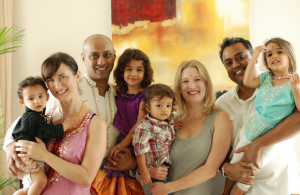A typical example: Two people meet, and just know it’s “love at first sight.” Passion reigns; they become attached and believe they’ve found their soul mate. Then what happens? In many cases, you hear that after several months or so, they’ve separated. Or they sink into a depressing reality that they might not really have an enduring relationship, after all. Why does that experience of sudden connection – a feeling of intense, genuine love — often fade fairly quickly? It’s intoxicating, but as a new study shows, it’s actually just lust, not love.
And that experience reflects a broader theme about flaws in how we think about and seek intimate relationships in our culture. At the same time, there is evidence about what does support long-term sexual-romantic partnerships.
First, the research about lust. Published in Personal Relationships, it looked at the experience of love at first sight reported by 360 participants. It found that the belief that one has fallen instantly in love is a genuine experience, but it’s not really about love; it’s more of a strong physical attraction.
The study, described here found that among those who describe a strong, positive relationship in the present, their recall of the past – that love at first sight experience – is likely “…a confabulated memory…a projection of their current feelings into the past,” according to researcher Florian Zsok That is, “our findings suggest that love at first sight reported at actual first sight resembles neither passionate love nor love more generally.” It’s more likely “…a strong initial attraction that some label as ‘love at first sight’ – either retrospectively or in the moment of first sight.”
Most people want sustaining romantic and sexual relationships, but our culture has fostered a view of love that’s essentially a version of adolescent romance. I’ve written about that here, and why it often fuels endless struggles for dominance, manipulation and control – along with a sense of being “in love.” Passion may reflect little knowledge about the real person you’ve fallen in love with, and more about your own enthrallment with your heady experience of feeling “in love.”
So what does keep love alive and thriving among successful couples? How do those couples relate to each other, day to day? How do they deal with fluctuations of sexual interest over time? Continue reading








